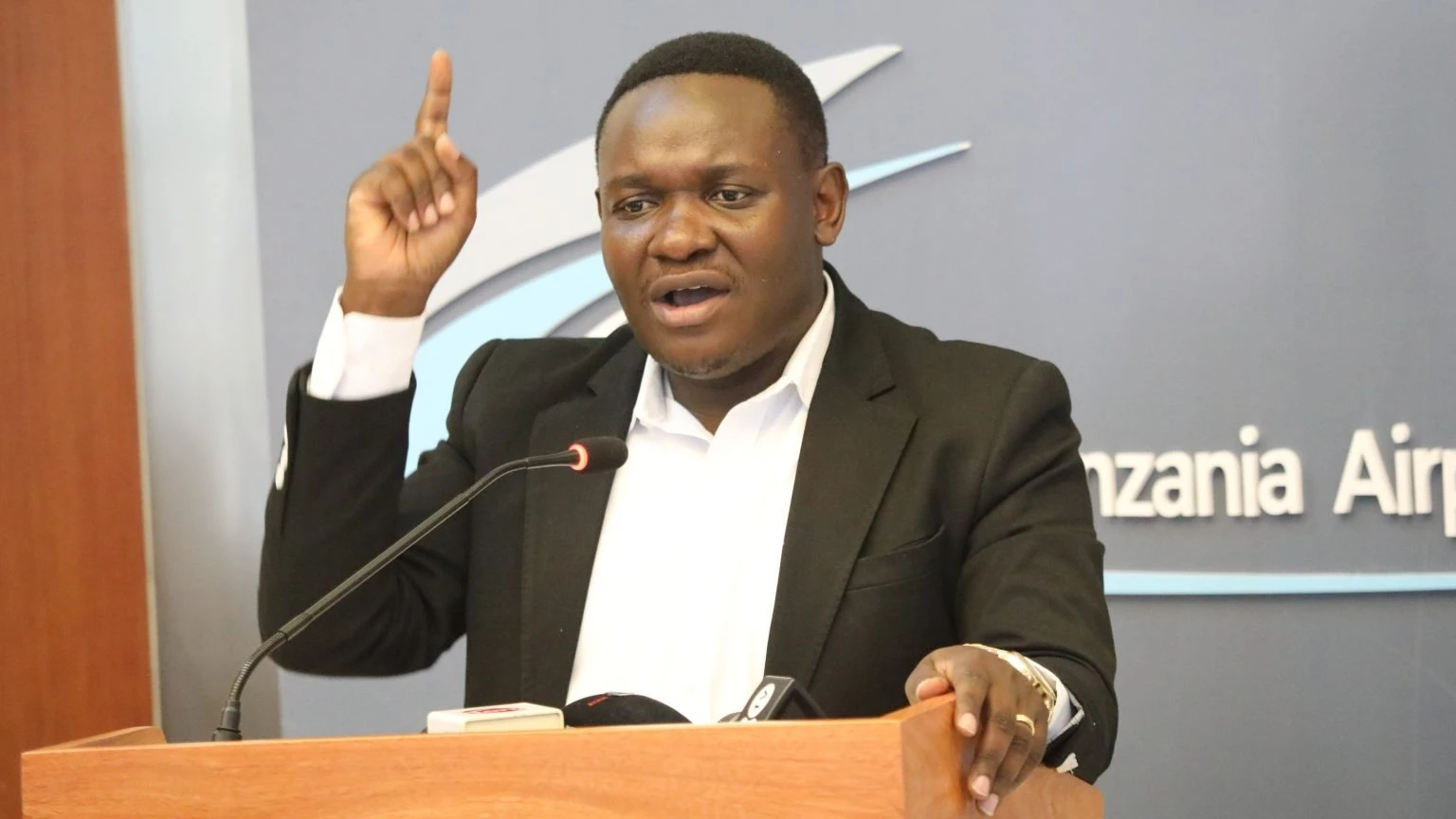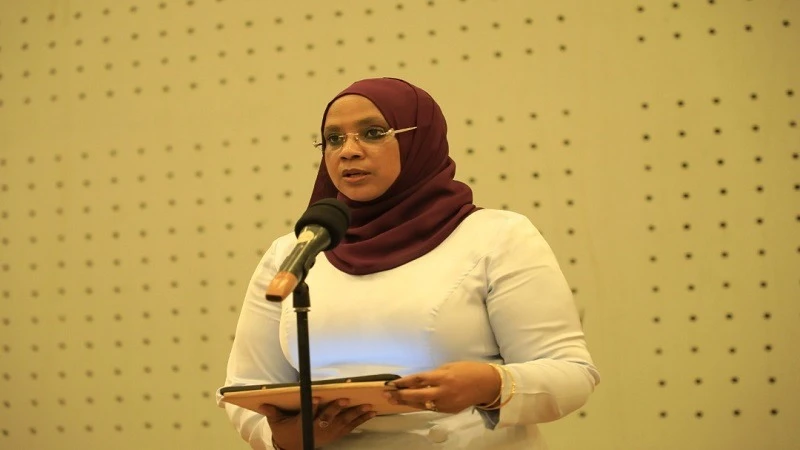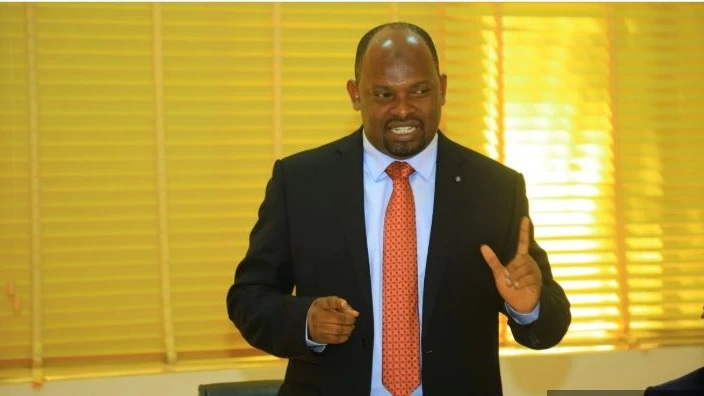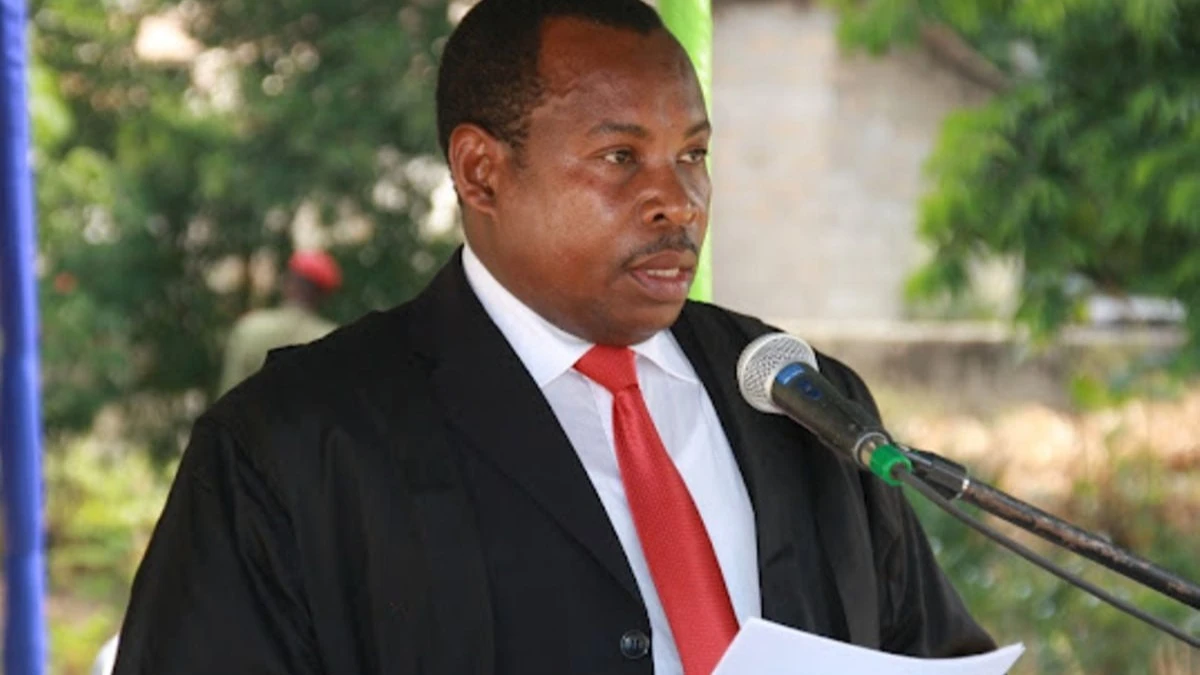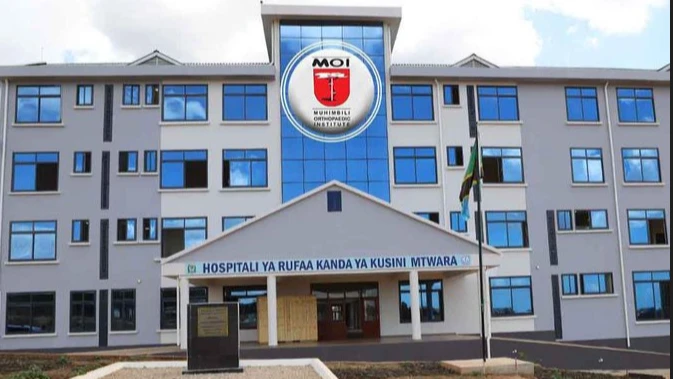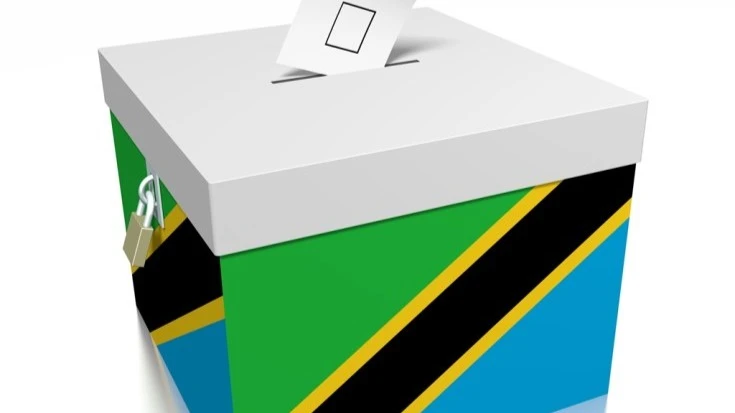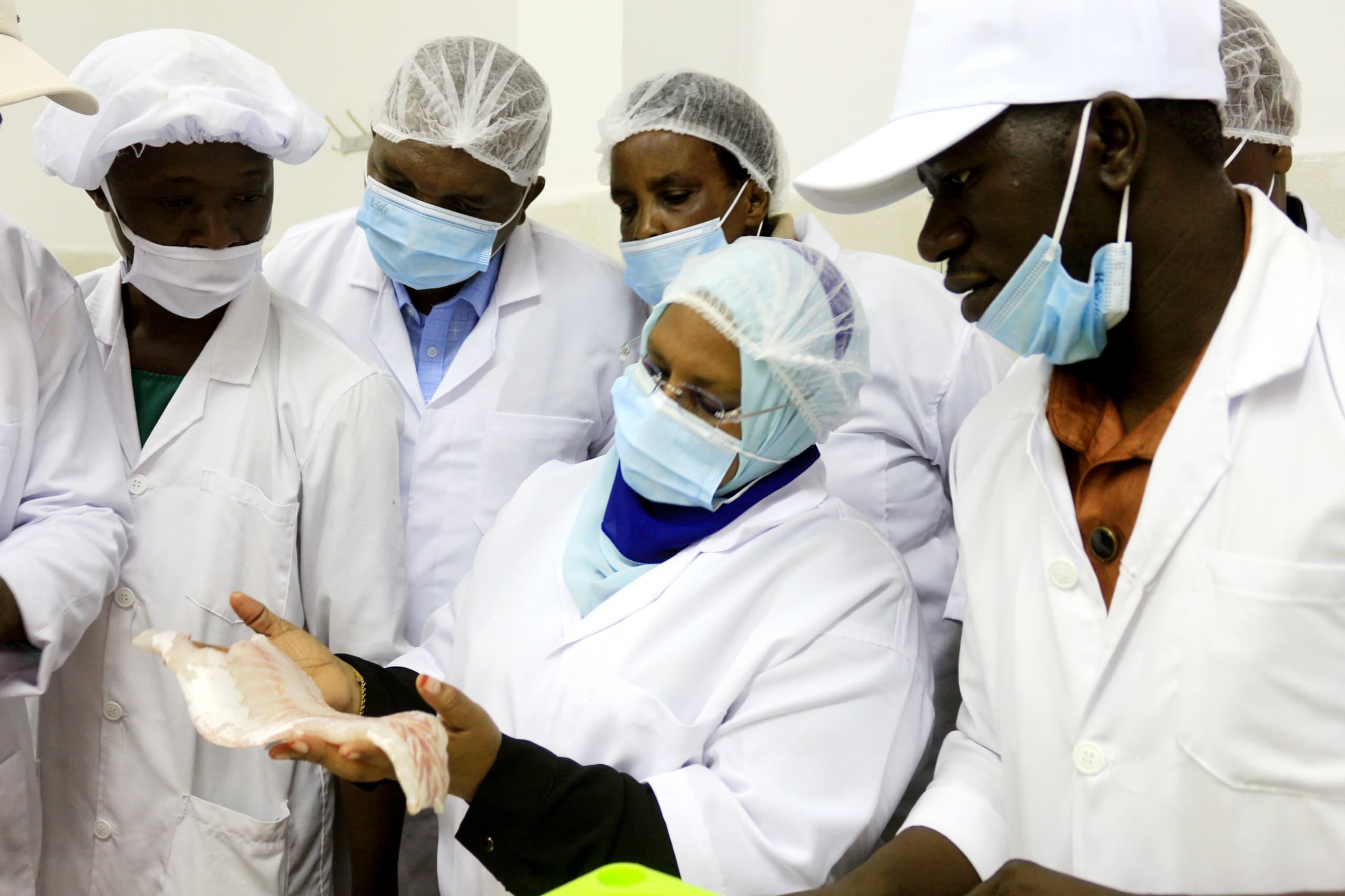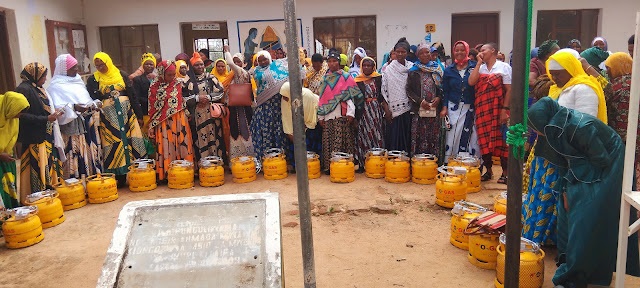U.S. President's Malaria Initiatives supports interventions to combat, eliminate the disease
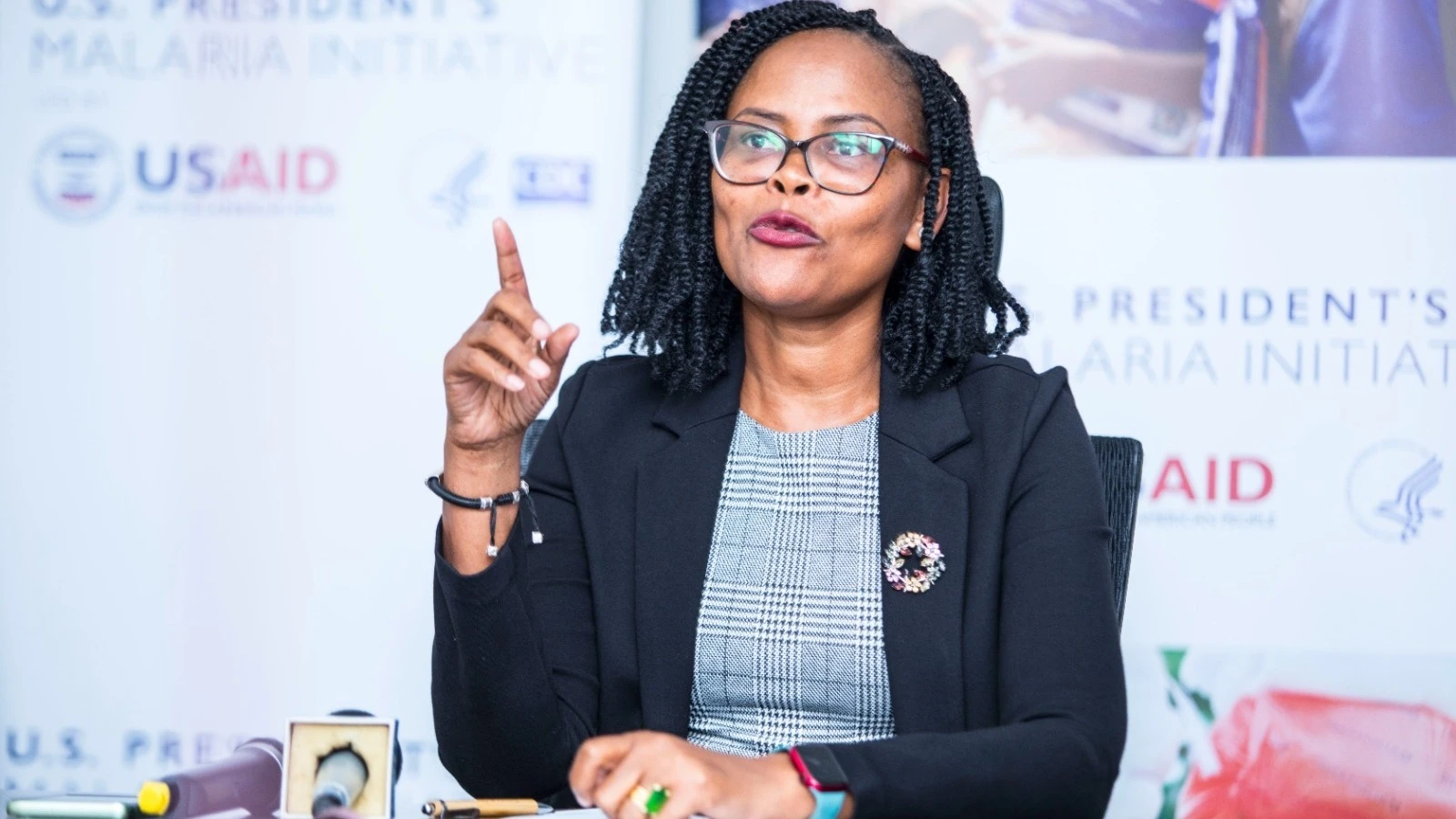
TANZANIA is among the top 11 countries globally in terms of malaria infections and deaths. However, the significant reduction in malaria prevalence in the country is attributed to a collaborative effort between the government, the U.S. President's Malaria Initiative (PMI), the Global Fund, and various malaria stakeholders. The Guardian interviewed Naomi Serbantez, PMI Resident Advisor and Malaria Team Lead at USAID/Tanzania on how the initiative has played a pivotal role in the fight against malaria. Here is an excerpt.
Q: Can you tell us what the U.S. President’s Malaria Initiatives (PMI) is? Which projects does it support and for how long has it been in the country?
A: As Tanzania’s largest bilateral donor, the U.S. government provides substantial assistance to Tanzania and sponsors a wide range of programs across many sectors, especially in the health and educational sectors. Among them, the U.S. President's Malaria Initiative (PMI) is a U.S. government program launched in 2005 to reduce malaria-related deaths and illnesses around the world. It is managed by a partnership between the U.S. Agency for International Development (USAID) and the U.S. Centers for Disease Control and Prevention (CDC), and focuses on malaria high-burden countries in sub-Saharan Africa and parts of Southeast Asia and Latin America.
In 2006, Tanzania was among the first three countries to receive funding under PMI. To date, Tanzania has received more than $747 million to support the fight against malaria in both mainland and Zanzibar.
The key objective of PMI is to complement the Government of Tanzania's efforts to control and eliminate malaria through interventions like the distribution of insecticide-treated mosquito nets, indoor residual spraying, intermittent preventive treatment for pregnant women, and prompt diagnosis and treatment of malaria.
PMI is improving the skills and abilities of health workers, enhancing supply chain management for malaria commodities, and supporting surveillance and monitoring systems. PMI also supports research to develop new malaria control tools and strategies by fostering innovations to improve the effectiveness of existing interventions.
Q: You are the first Tanzanian woman to be appointed U.S. President’s Malaria Initiative USAID Resident Advisor and Malaria Team Lead at USAID/Tanzania. What does this milestone mean to you and the public health profession? What is the benefit Tanzania as a country is benefiting from your role?
A: This appointment is a significant milestone both personally and for the public health profession. It recognizes my expertise, dedication, and contributions to malaria control and public health, validating the hard work and commitment I have invested in combating malaria and improving health outcomes in Tanzania.
Representing my country at such a high level is a source of immense pride, and I hope my achievement will inspire other Tanzanians, especially young professionals, to pursue careers in public health and strive for excellence. This role brings a great responsibility to lead and positively impact malaria control efforts. It also provides an opportunity to bring local insights and perspectives to PMI's strategies, ensuring they are effectively tailored to the Tanzanian context.
My appointment demonstrates the growing recognition of the capabilities and potential of local health professionals. It highlights the importance of involving local expertise in leadership positions to address health challenges more effectively. This milestone underscores the value of investing in professional development for health workers, encouraging more initiatives aimed at enhancing the skills and knowledge of local professionals in the public health sector.
Having a Tanzanian in this role strengthens partnerships between local and international stakeholders, enhancing collaboration, ensuring better alignment with national priorities, and fostering a more inclusive approach to malaria control and public health initiatives. This achievement serves as a role model for aspiring public health professionals, demonstrating that with dedication, hard work, and the right opportunities, they can attain leadership positions and contribute significantly to their field.
With a local perspective in a key advisory role, there is potential for more culturally and contextually appropriate interventions, leading to more effective strategies and a greater impact on malaria control efforts. As a woman in leadership, this appointment adds to the diversity of leadership in global health initiatives, highlighting the importance of representation and inclusivity in tackling global health challenges. It reflects global recognition of the progress and potential in Tanzania's public health sector, potentially attracting more attention and resources to support ongoing and future health initiatives in the country.
Overall, this milestone is a testament to the progress in public health in Tanzania and the value of local leadership in global health initiatives. It signifies a step forward in achieving more effective and sustainable health outcomes through inclusive and collaborative efforts.
Q: As the US President’s Malaria Initiative’s (PMI) USAID Resident Advisor and Malaria Team Lead, leading the second largest global PMI program with programming at $44 million per year, can you tell us how the funds are spent in fighting malaria in the country?
A: Managing a significant program with a large budget, it is critical to allocate these funds strategically to maximize the impact on malaria control and elimination. By strategically allocating funds across WHO-proven interventions, the PMI program reduces malaria transmission, decreases malaria-related morbidity and mortality, and ultimately, will achieve the goal of malaria elimination in the country.
Q: What are the key malaria projects to which PMI is currently giving priority in the country?
A: In Tanzania (both mainland and Zanzibar), PMI focuses on several malaria interventions to combat and eventually eliminate malaria. The areas of highest priority include Vector (Mosquito) Control - PMI supports the procurement and distribution of mosquito-treated bed nets to households and primary schools, and it prioritizes vulnerable groups, such as children under five and pregnant women, through continuous bed net distribution through antenatal care (ANC) and immunization clinics.
Another area is on case Management whereas PMI focuses on strengthening malaria diagnostic capabilities by providing rapid diagnostic tests (RDTs) and enhancing laboratory services to ensure accurate and timely malaria diagnosis. Ensuring the availability and distribution of effective antimalarial drugs, particularly artemisinin-based combination therapies (ACTs), to health facilities and community health workers as well as Malaria in Pregnancy, the support that ensures pregnant women receive preventive treatment during their antenatal visits to protect them and their unborn children from malaria.
Q: Malaria prevalence rate in Tanzania dropped from 14 percent in 2015 to 7 percent in 2022. Tell us how collaboration with PMI helped the country achieve this milestone.
A: The significant reduction in malaria prevalence in Tanzania is attributed to a collaborative effort between the Government of Tanzania, PMI, the Global Fund, and various malaria stakeholders. PMI complements the efforts of the Government of Tanzania by supporting the National Malaria Strategic Plans.
Q: Zanzibar faced a malaria surge despite past successes because of climate change. How is PMI combating this challenge to ensure there won’t be a resurgence?
A: PMI, together with the Zanzibar Malaria Elimination Program (ZAMEP) and other malaria stakeholders under the leadership of the Ministry of Health Zanzibar, is actively addressing the challenge of malaria resurgence in Zanzibar. Recently, this resurgence has been associated with climate change and the resultant prolonged rains last year.
The key strategies that are being deployed to combat this issue and ensure sustained malaria control include; enhancing surveillance and response by strengthening malaria surveillance systems to detect and respond to malaria cases promptly.
This includes real-time data collection and analysis to track malaria trends and identify outbreaks early; implementing early warning systems that incorporate climate data to predict malaria outbreaks, allowing for timely interventions and resource allocation; implementing integrated vector management by distributing insecticide-treated nets and conducting targeted indoor residual spraying campaigns in high-risk areas to reduce mosquito populations; adapting to climate change adaptation by developing strategies that are resilient to climate change.
For example, promoting environmental management practices to reduce mosquito breeding sites, such as draining stagnant water, managing waste properly, and taking other measures to minimize breeding habitats; improving access to diagnosis and treatment by ensuring the availability and use of malaria test kits in health facilities.
It is critically important to have access to effective antimalarial drugs and ensure that healthcare workers are trained in proper case management; ensuring community engagement and implementing social and behavior change campaigns to educate communities about the importance of using insecticide-treated nets every night, seeking prompt treatment, and other preventive measures.
This includes engaging community leaders and members in malaria control activities, fostering ownership, encouraging participation in prevention efforts, and strengthening health systems by working closely with the Government of Tanzania, local health authorities, NGOs, and other stakeholders to ensure coordinated and comprehensive malaria control efforts.
Q: The projection is that Tanzania will be able to eradicate malaria by 2050. Tanzania is still among the top 11 countries globally in terms of malaria infections and deaths. How close or far are we from this goal?
A: Tanzania has made progress in reducing malaria cases, but achieving eradication by 2050 demands intensified efforts, innovation, and ongoing collaboration among governments, international organizations, NGOs, and local communities. While aspirational, this goal remains feasible through sustained commitment and comprehensive strategies that address the complex challenges of malaria. By implementing these strategies and fostering collaboration across sectors, Tanzania can significantly reduce malaria infections and deaths, moving closer to the ultimate goal of elimination.
Q: Former President Jakaya Kikwete advised the Tanzania End Malaria Council to ramp up efforts using successful strategies in light of the prevailing challenges. What is the outlook?
A: The outlook for malaria control in Tanzania involves a concerted effort to scale up successful strategies while adapting to emerging challenges. With political will, sustained funding, private sector, and community engagement, Tanzania can make additional strides toward reducing the malaria burden and move closer to the goal of elimination.
Q: How does PMI support government-led initiatives to combat malaria?
A: PMI's support for government-led initiatives to combat malaria is comprehensive and strategic, focusing on strengthening health systems, enhancing malaria prevention and control interventions, improving surveillance and monitoring, fostering innovation, and advocating for sustained commitment and partnerships. By working in partnership with governments and other stakeholders, PMI contributes significantly to efforts aimed at reducing the malaria burden and ultimately achieving its malaria elimination goals in affected countries like Tanzania.
Q: What are the top three tips to protect yourself and your family from malaria?
A: The main three tips are, to sleep under an insecticide-treated mosquito bed net every night. Mosquitoes that transmit malaria are typically active during nighttime. Ensure that the bed nets are intact and properly treated with insecticide; seek prompt diagnosis and treatment for fever. If you or your child develops symptoms such as fever, chills, headache, muscle aches, or fatigue, seek medical attention promptly, especially if you live in or have traveled to a malaria-endemic area. If diagnosed with malaria, complete the full course of antimalarial medication as prescribed by healthcare professionals to ensure effective treatment and reduce the risk of transmission and elimination of mosquito breeding sites around your home, work site, and places where you spend leisure time. You can reduce mosquito breeding and the resultant risk of malaria infection by draining stagnant water, using larvicides where applicable, and ensuring proper waste disposal. By following these tips consistently, you can significantly reduce the risk of malaria infection for yourself and your family.
Top Headlines
© 2024 IPPMEDIA.COM. ALL RIGHTS RESERVED











